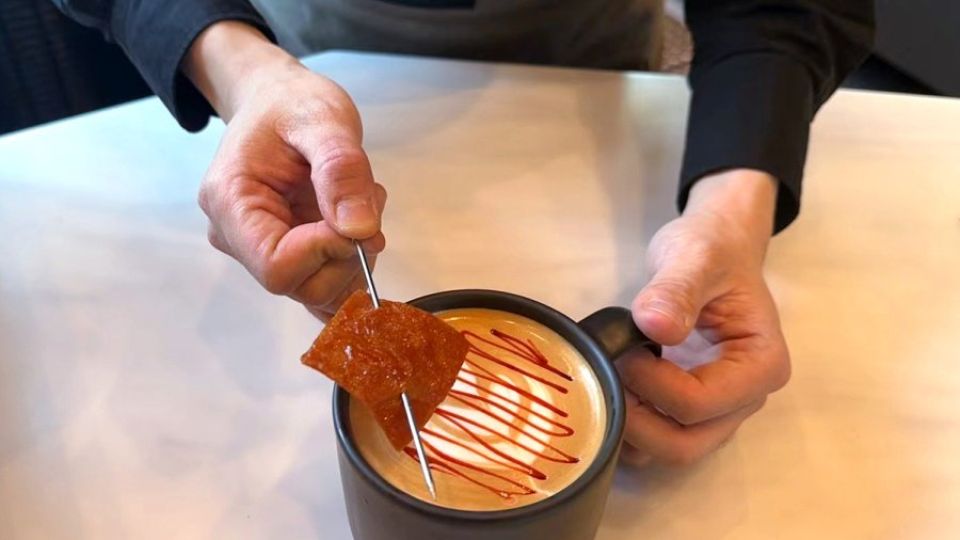February 26, 2024
BEIJING – A cup of braised pork-flavored coffee is now available at Starbucks China as part of its innovative menu to serve and tap Spring Festival consumption. The coffee house chain recently rolled out the new beverage combining Dongpo braised pork sauce with espresso and steamed milk.
The drink is priced at 68 yuan ($9.45) and is offered at around 25 Starbucks Reserve stores around the country. A promotional poster of the drink shows a slice of pork on a skewer resting on a mug. The drink has sold out at many stores so far.
Other Starbucks’ new Spring Festival-inspired drinks include rice flavored macchiato and black sesame latte.
Jessica Li from Xi’an, Shaanxi province, shared her experience of trying the pork coffee on Thursday, expressing her fondness for the novel drink topped with a pork slice.
“I chose this flavor for its innovative combination,” Li said. “It feels refreshing and resonates with the culture and atmosphere of Chinese Lunar New Year. It offers a unique blend of salty, sweet, fresh and fragrant gustatory elements.”
A customer going by the online name “Romeo” said on Chinese social media and lifestyle platform Little Red Book that the cost of the new drink is a bit too pricey for his tastes, and he would rather spend his money on buying actual pork to cook at home and drink coffee separately.
Jason Yu, general manager of Kantar Worldpanel China, a market research institute, said the recent innovation on Starbucks’ menu is prompting discussion on social networks. But over the long term, the company must prioritize the development of a flagship item capable of capturing consumers’ enduring attention.
Yu cited the example of coconut-flavored latte, which has swiftly risen as a top seller for Luckin Coffee since its introduction last year.
McDonald’s coffee arm McCafe recently rolled out a new breakfast menu featuring a McMuffin sandwich and brewed coffee for just 15 yuan.
“Starbucks should act really quickly to enhance their consumer experience and products through a differentiation strategy,” Yu said.
The coffee market in China remains fiercely competitive, with new products and collaborations emerging almost weekly. The trend continues for products like fruit-flavored coffees and diversified ingredients to help elevate repurchase rates and customer loyalty, said Bernie Gao, a food and drinks research analyst at market research firm Mintel China.
Last year, Luckin Coffee teamed up with the country’s top liquor maker Kweichow Moutai to roll out a baijiu, or white liquor-flavored coffee, which proved a success, with Luckin selling 5.42 million cups and grossing some 100 million yuan on launch day.
Unconventional coffee flavors have mushroomed in hopes of standing out from the competition, such as coffee with sesame paste flavor and latte with a stirring rod made of pickled Chinese cabbage.
According to Mintel’s estimates, total sales of on-premises coffee are expected to reach 74.1 billion yuan in 2023, up 29.5 percent year-on-year, and will continue growing with a compound annual growth rate (CAGR) of 24.5 percent over 2023-28.
The total number of coffee shops in China reached 117,300 in 2022 and will reach 283,800 by 2028, representing a five-year CAGR of 12.7 percent.
On the growth of new stores, national coffee brands have a better performance compared to international ones, Mintel added.


